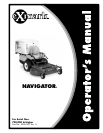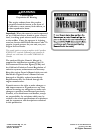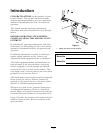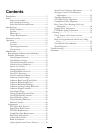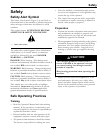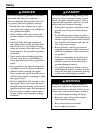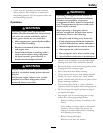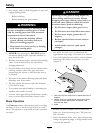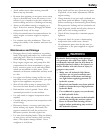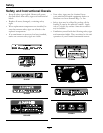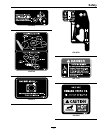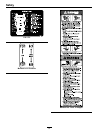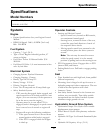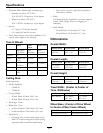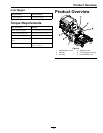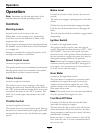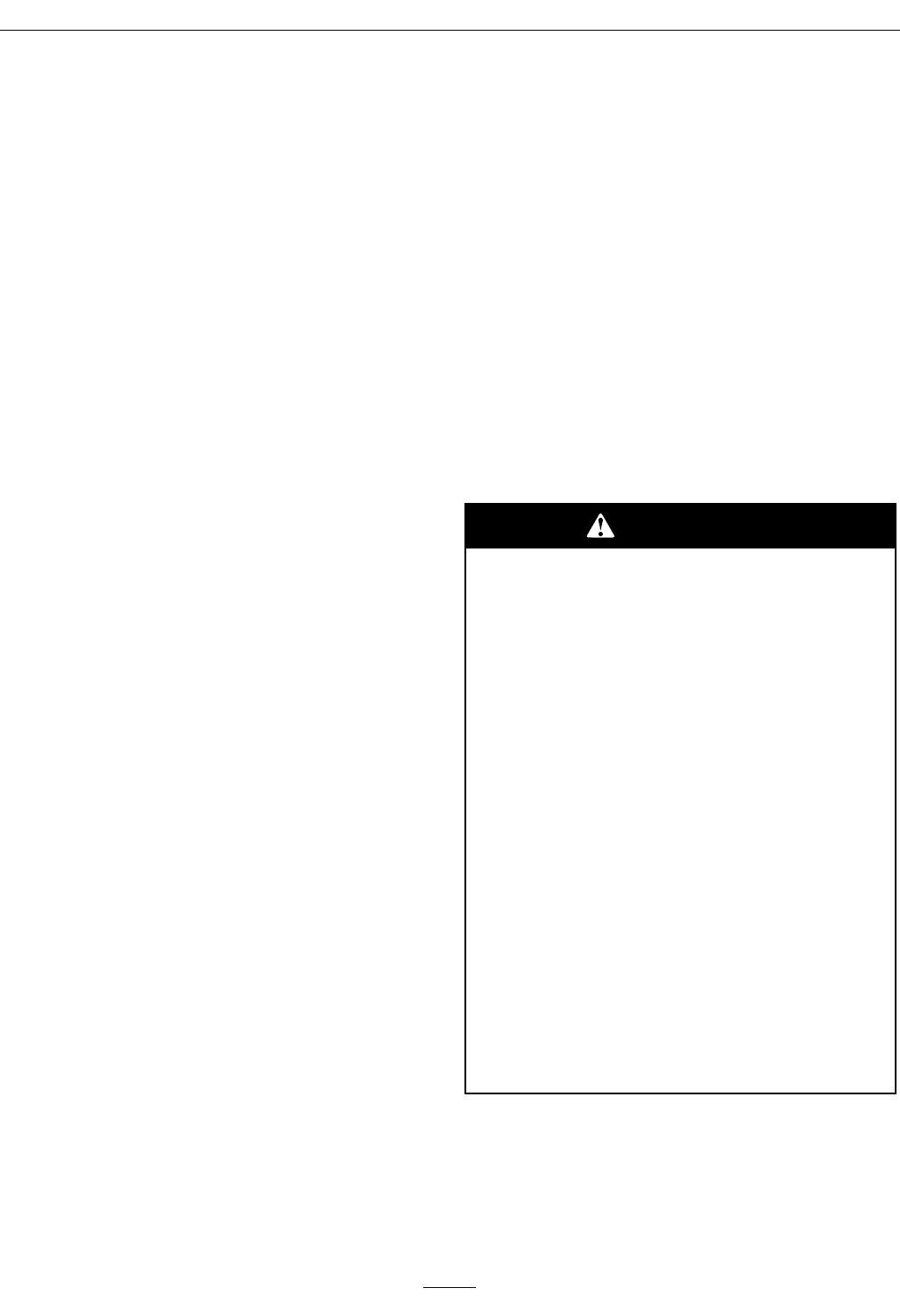
Safety
• Avoid sudden starts when mowing downhill.
Mower may tip forwards.
• Be aware that operating on wet grass, across steep
slopes or downhill may cause the mower to lose
traction. Loss of traction to the drive wheels may
result in sliding and a loss of braking and steering.
• Always avoid sudden starting or stopping on a
slope. If tires lose traction, disengage the blades
and proceed slowly off the slope.
• Follow the manufacturer’s recommendations for
wheel weights or counter weights to improve
stability.
• Use extreme care with attachments. These can
change the stability of the machine and cause loss
of control.
Maintenance and Storage
• Disengage drives, lower implement, set parking
brake, stop engine and remove key or disconnect
spark plug wire. Wait for all movement to stop
before adjusting, cleaning or repairing.
• Keep engine, engine area, and pump drive belt
compartment free from accumulation of grass,
leaves, excessive grease or oil, and other debris
which can accumulate in these areas. These
materials can become combustible and may result
in a re.
• Let engine cool before storing and do not store
near ame or any enclosed area where open pilot
lights or heat appliances are present.
• Shut off fuel while storing or transporting. Do
Not store fuel near ames or drain indoors.
• Park machine on level ground. Never allow
untrained personnel to service machine.
• Use jack stands to support components when
required.
• Carefully release pressure from components with
stored energy.
• Disconnect battery or remove spark plug wire
before making any repairs. Disconnect the
negative terminal rst and the positive last.
Reconnect positive rst and negative last.
• Use care when checking blades. Wrap the blade(s)
or wear gloves, and use caution when servicing
them. Only replace damaged blades. Never
straighten or weld them.
• Keep hands and feet away from moving parts.
If possible, do not make adjustments with the
engine running.
• Charge batteries in an open well ventilated area,
away from spark and ames. Unplug charger
before connecting or disconnecting from battery.
Wear protective clothing and use insulated tools.
• Keep all guards, shields and all safety devices in
place and in safe working condition.
• Check all bolts frequently to maintain proper
tightness.
• Frequently check for worn or deteriorating
components that could create a hazard.
• All replacement parts must be the same as
or equivalent to the parts supplied as original
equipment.
WARNING
Hydraulic uid escaping under pressure
can penetrate skin and cause injury. Fluid
accidentally injected into the skin must be
surgically removed within a few hours by a
doctor familiar with this form of injury or
gangrene may result.
• Make sure all hydraulic uid hoses
and lines are in good condition and
all hydraulic connections and ttings
are tight before applying pressure to
hydraulic system.
• Keep body and hands away from pinhole
leaks or nozzles that eject high pressure
hydraulic uid.
• Use cardboard or paper, not your hands,
to nd hydraulic leaks.
• Safely relieve all pressure in the hydraulic
system by placing the motion control
levers in neutral and shutting off the
engine before performing any work on
the hydraulic system.
9



